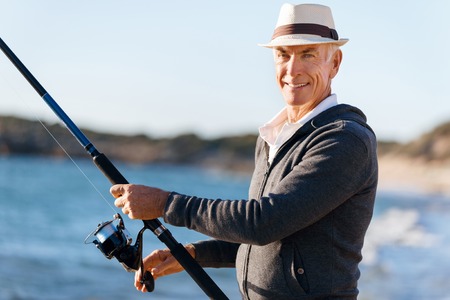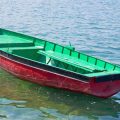1. Choosing the Perfect Off-Grid Location
When youre planning an off-grid fishing getaway, the first step is finding the right spot that offers both peaceful boondocking and great fishing opportunities. The key is to look for remote areas where you can legally camp and have access to lakes, rivers, or streams filled with fish. Thankfully, the U.S. has plenty of public lands perfect for this kind of adventure.
Know Where You Can Camp
Not all land is open for free camping, so it’s important to understand your options. Here are some popular types of public lands where boondocking is allowed:
| Land Type | Managed By | Boondocking Allowed? | Fishing Access |
|---|---|---|---|
| Bureau of Land Management (BLM) Land | U.S. Department of the Interior | Yes, in most areas | Often near rivers and reservoirs |
| National Forests | U.S. Forest Service | Yes, unless otherwise posted | Lakes, creeks, and streams available |
| Wildlife Management Areas (WMA) | State Agencies | Varies by state | Great for freshwater fishing |
How to Scout a Great Spot
You’ll want a location that balances solitude with accessibility to water. Use online tools like Google Maps, Gaia GPS, FreeRoam, or iOverlander to check terrain and find nearby bodies of water. Also look at local fishing reports to see what species are biting in that area.
Here are some tips when scouting:
- Distance from water: Aim to camp within walking distance of a lake or river.
- Elevation: Higher altitudes often mean cooler temps and different fish species.
- Access roads: Make sure your vehicle can handle the road conditions—especially if youre towing a trailer or driving a van.
- No-camping zones: Always double-check local rules to avoid fines or being asked to move.
Best States for Boondocking + Fishing Combo
Certain states offer better opportunities than others thanks to their abundance of public land and fishable waters. Here are a few favorites among off-grid campers and anglers:
| State | Why Its Great |
|---|---|
| Montana | Tons of BLM land and famous trout streams like the Madison River |
| Colorado | Diverse alpine lakes and excellent national forest access |
| Arizona | Mild winters, good bass fishing in lakes like Roosevelt and Apache Lake |
| Oregon | Lush forests and salmon-rich rivers like the Rogue and Umpqua |
Your Next Step
Once youve narrowed down a region based on your preferences—such as target fish species or climate—start marking potential campsites near water sources. Keep track of GPS coordinates, elevation data, and cell coverage if needed. Don’t forget to check weather conditions before heading out!
2. Essential Gear for Boondocking and Fishing
When youre planning an off-grid getaway that combines boondocking and fishing, having the right gear is key to staying comfortable, safe, and ready to reel in your next big catch. Heres a breakdown of the must-have equipment that will help you get the most out of your adventure.
Power Solutions
Since youll be off the grid, you’ll need reliable power sources to keep essential devices running—like your phone, GPS, or portable fridge. Here are some great options:
| Power Option | Description | Why It’s Useful |
|---|---|---|
| Portable Solar Panels | Foldable panels that charge batteries during daylight | Eco-friendly and silent power source for long stays |
| Power Stations (Battery Packs) | Rechargeable units with AC/DC/USB outputs | Powers small appliances, lights, and electronics |
| Generator (Gas or Dual Fuel) | Traditional backup power supply | Good for cloudy days or higher energy needs |
Food Storage
Keeping your food fresh is a top priority when youre far from stores. Choose a storage solution based on how long you plan to stay out and what type of food youll bring.
| Storage Type | Description | Best For |
|---|---|---|
| Portable Fridge/Freezer (12V) | Runs off solar or battery power, keeps food cold or frozen | Extended trips and perishable foods like meat or dairy |
| Cooler with Ice Packs | No power needed; uses ice to chill contents | Short trips or backup storage |
| Dry Food Bins | Airtight containers for snacks, canned goods, etc. | Packing non-perishables and staying organized |
Tackle Boxes and Fishing Gear
Your fishing gear should be compact yet versatile enough to handle whatever the lake, river, or stream throws at you. Here’s what you shouldn’t leave behind:
- Tackle Box: Choose one with adjustable compartments to keep lures, hooks, weights, and tools organized.
- Rod & Reel Combo: A telescoping rod or travel-sized combo saves space and works well for various fish species.
- Bait & Lures: Pack a variety suited to the waters you’ll be fishing—live bait if you can store it properly, or soft plastics and spinners as alternatives.
- Fishing License: Make sure it’s valid for the state youre visiting—it’s a must-have!
- Pliers & Line Cutter: Handy for quick hook removal and line adjustments on the go.
Other Must-Have Camping Gear
- Water Storage & Filtration: Bring fresh water tanks or jugs, plus a portable water filter for refilling from natural sources.
- Campsite Essentials: Include folding chairs, lanterns, firewood (if allowed), and a first-aid kit.
- Shelter Options: Whether its a rooftop tent, camper van setup, or simple ground tent—make sure it suits the terrain and weather.
The right gear makes all the difference when youre blending boondocking with fishing. With proper planning and these essentials packed up, youll be ready for anything Mother Nature sends your way while enjoying some peaceful time on the water.
![]()
3. Setting Up Camp for a Successful Trip
Once you’ve found the perfect spot to boondock and fish, it’s time to set up camp in a way that keeps things safe, comfortable, and efficient. Whether youre in a van, RV, or truck camper, proper setup can make or break your off-grid fishing adventure.
Tips for Positioning Your Rig
- Face the right direction: Position your rig so that your main windows face scenic views or away from strong winds. This helps with both airflow and enjoyment.
- Level your vehicle: Use leveling blocks or ramps to keep your rig stable. A level rig means better sleep and proper functioning of appliances.
- Proximity to water: Park close enough to your fishing spot for easy access but far enough to avoid rising tides, flooding, or muddy terrain.
- Sun exposure: Consider solar panel positioning if youre relying on solar power. Aim to park where youll get maximum sunlight during the day.
Maintaining a Safe and Comfortable Site
- Fire safety: Set up fire pits at least 15 feet away from your rig. Keep a bucket of water or fire extinguisher nearby at all times.
- Wildlife awareness: Store food in sealed containers inside your vehicle to avoid attracting animals like raccoons or bears.
- Cleanliness: Pack out all trash and dispose of waste properly. A tidy campsite is not only respectful but also safer from pests and hazards.
- Shelter & shade: Use awnings or pop-up canopies to create shaded areas for relaxing after a long day of fishing.
Organizing Your Fishing Gear
A well-organized fishing setup means more time casting lines and less time digging through bins. Here are some ways to keep gear accessible and ready to go:
| Item | Storage Tip |
|---|---|
| Tackle boxes | Use labeled stackable boxes with clear lids so you can quickly find lures, hooks, and lines. |
| Rods & reels | Install wall-mounted rod holders inside your rig or use PVC pipes secured in a storage bin. |
| Bait | If using live bait, keep them in aerated containers stored in shaded spots outside your vehicle. |
| Nets & tools | Hang these on hooks near the door of your rig so they’re easy to grab on your way out. |
Quick Grab-and-Go Setup
Create a designated “grab-and-go” bag with essentials like pliers, extra line, sunscreen, bug spray, and snacks. Keeping this near the door lets you hit the water faster without forgetting key items.
Bonus Tip:
If youre staying more than a couple of days, consider setting up a small outdoor workstation for cleaning fish and prepping gear. Use a fold-out table with water jugs nearby for easy cleanup.
A little planning goes a long way when combining boondocking with fishing. With the right setup, you’ll be able to enjoy peaceful mornings by the water and cozy evenings around the fire—all while keeping everything you need close at hand.
4. Best Fishing Techniques for Remote Waters
When youre boondocking in the wild, you won’t always have access to fancy gear or a bait shop nearby. That’s why knowing some simple and effective fishing techniques can make your off-grid getaway even more rewarding. Whether you’re near a quiet mountain stream, a forest lake, or a slow-moving river, these methods work well in remote locations often found while boondocking.
Spin Fishing: A Versatile Option
Spin fishing is one of the easiest and most effective ways to catch fish in lakes, rivers, or streams. All you need is a spinning rod, reel, line, and a few lures or bait. Lightweight setups are perfect for backcountry waters where fish may be smaller but plentiful. Use spinners, soft plastics, or small crankbaits to mimic local prey.
Recommended Lure Types by Water Type:
| Water Type | Best Lure Type |
|---|---|
| Mountain Streams | Inline spinners (like Rooster Tails) |
| Lakes | Soft plastics (worms, grubs), crankbaits |
| Rivers | Spoons, jigs with curly tails |
Bait Fishing: Keep It Natural
If you prefer a more relaxed approach or if artificial lures aren’t working, live bait or natural bait can be a great choice. Worms, insects, or even corn kernels can attract trout, panfish, or bass depending on where you’re fishing. You can often find bait around your campsite — dig for worms or look under rocks for insects.
Tenkara Fishing: Ultralight and Compact
Tenkara is a Japanese-style fly fishing technique that’s gaining popularity among off-grid campers because it’s simple and compact. There’s no reel involved — just a telescoping rod, line, and fly. It works especially well in narrow streams where casting space is limited.
Handlining: No Rod Needed
For the ultra-minimalist angler, handlining is an old-school method that involves just a spool of line, a hook, and some bait. Wrap your line around a small stick or hand spool and drop it into deeper water from shore or canoe. It’s not fancy but can be surprisingly effective in remote areas.
Quick Tips for Success:
- Fish early morning or late evening when fish are most active.
- Use stealth — stay quiet and avoid splashing near the waters edge.
- Match your bait or lure to what local fish are feeding on.
- Carry multi-purpose gear to save space and weight during travel.
With these techniques in your toolkit, you’ll be ready to make the most of any remote fishing spot you find while boondocking. Whether youre after trout in a cold stream or bass in a hidden lake, keeping things simple often leads to better results — and more fun along the way.
5. Leave No Trace and Outdoor Ethics
When youre combining boondocking and fishing for a true off-grid adventure, its essential to respect nature and follow outdoor ethics. Leaving no trace means minimizing your environmental impact so others can enjoy the same beauty you do. Whether youre camping in a national forest or fishing along a remote riverbank, your actions matter.
Why It Matters
Off-grid locations are often untouched and pristine. That’s part of their charm—but it also means they’re more vulnerable to damage. Practicing outdoor ethics helps protect these places for future adventurers, wildlife, and the environment itself.
Key Principles to Follow
Heres a quick breakdown of how to practice Leave No Trace while boondocking and fishing:
| Principle | How to Apply It |
|---|---|
| Pack It In, Pack It Out | Bring trash bags and take all garbage with you, including food scraps and fishing line. |
| Proper Waste Disposal | If there are no toilets, bury human waste at least 6-8 inches deep and 200 feet away from water sources. |
| Respect Wildlife | Observe animals from a distance and never feed them. Store food securely to avoid attracting them. |
| Avoid Sensitive Areas | Camp on durable surfaces like gravel or dry grass. Avoid trampling vegetation near rivers or lakes. |
| Leave What You Find | Don’t take rocks, plants, or artifacts as souvenirs. Let nature stay natural. |
Sustainable Fishing Practices
Fishing responsibly is just as important as how you camp. Always follow local regulations, use barbless hooks if practicing catch-and-release, and don’t overfish an area. If cleaning your catch on-site, do it away from water sources and pack out remains when possible.
Tip:
If you use live bait, make sure it’s native to the area to avoid introducing invasive species that could harm local ecosystems.
Campfire Caution
If campfires are allowed where youre staying, keep them small and contained. Use existing fire rings if available, never leave fires unattended, and fully extinguish them before leaving camp. Better yet, use a portable stove for cooking—it’s safer and leaves less impact.
Remember:
Your goal isn’t just to enjoy the outdoors—it’s to preserve it. By taking care of the wild spaces you visit during your off-grid fishing trips, you ensure they’ll be around for generations of anglers and campers to come.


